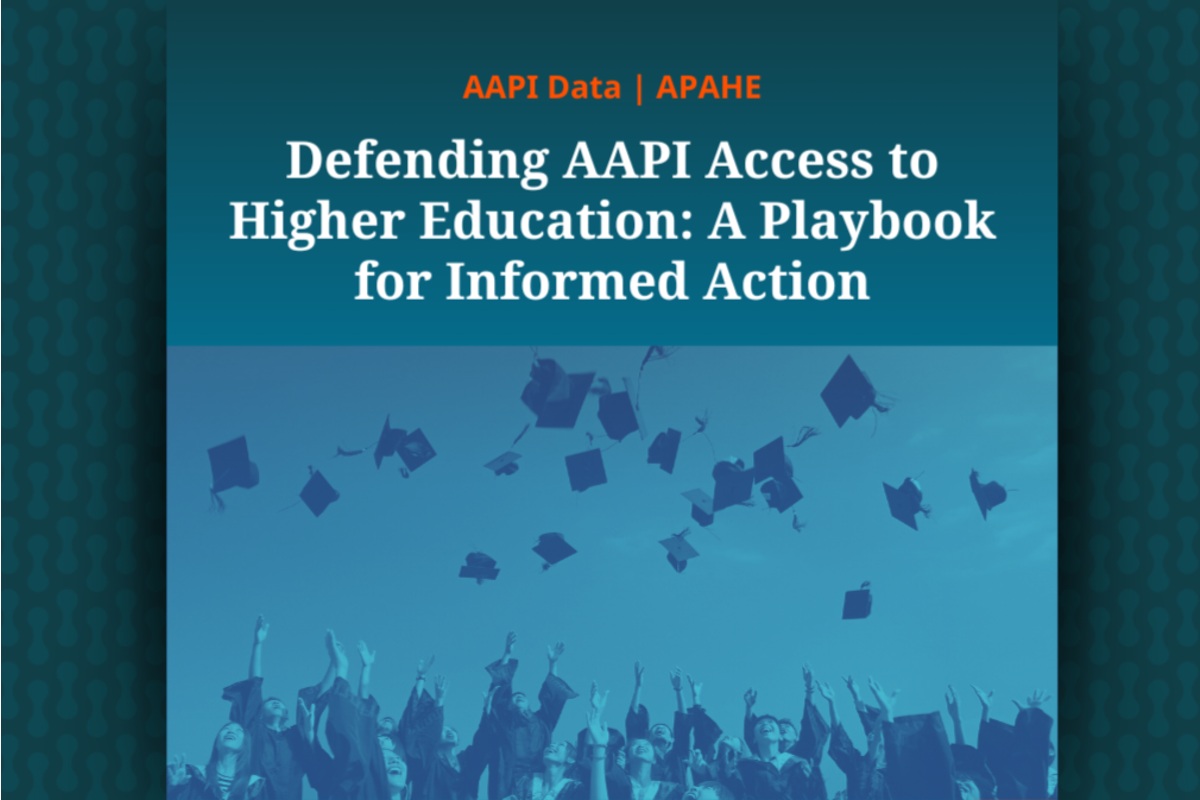New playbook protects AANHPI access to higher education
The playbook by AAPI and APAHE warns of budget cuts, legislation, and executive actions threatening AANAPISIs, student aid, research, and campus speech rights.
 The playbook, released in early June, outlines budget and policy changes that could severely impact AAPI students. / AAPI Data
The playbook, released in early June, outlines budget and policy changes that could severely impact AAPI students. / AAPI Data
Asian Pacific Americans in Higher Education (APAHE) and Asian American and Pacific Islander (AAPI) Data have released a new playbook to defend access to higher education for Asian American, Native Hawaiian, and Pacific Islander (AANHPI) students.
The report titled ‘Defending AAPI Access to Higher Education’, comes amid significant policy threats in 2025 from Congress and the federal executive branch that, according to the authors, could undermine equity and opportunity in U.S. higher education.
New: AAPI Data + APAHE have created a playbook to protect AANHPI access to higher ed.
— AAPI Data (@AAPIData) June 9, 2025
With policy threats mounting, we need smart, data-driven advocacy. This resource offers real steps for action.
Read the playbook: https://t.co/Q8C1MNKZbm pic.twitter.com/Eq6uVI6vvM
The playbook, released in early June, outlines budget and policy changes that could severely impact AAPI students, particularly those attending federally recognized Minority Serving Institutions (MSIs) known as AANAPISIs (Asian American and Native American Pacific Islander-Serving Institutions). The report highlights declining federal support and recent legislation and administrative proposals that would cut critical funding.
Among the most immediate threats is the “One Big Beautiful Bill Act” (HR1), which passed the House in May and is now under Senate consideration. The bill includes reductions to Pell Grants, subsidized student loans, and other forms of financial aid. The President’s FY26 Budget, released in late May, proposes steep cuts to work-study programs and nearly $10 billion in Pell Grant reductions.
“These actions will hurt institutions that serve low-income students the most,” said the authors. “And AANAPISIs, while serving one of the fastest-growing student populations, continue to be the least funded MSI category.”
Executive branch actions also pose new risks. The playbook points to anticipated summer 2025 administrative decisions that could slash research budgets, revoke student visas, and impose restrictions on campus free speech and protest.
Public sentiment within AAPI communities reflects concern over these trends. According to a May 2025 AAPI Data/AP-NORC poll, 63 percent of AAPIs are extremely or very concerned about student loan debt, 57 percent about restrictions to campus speech, and 56 percent about cuts to university research.
ALSO READ: Majority of AAPI adults concerned over campus free speech: Poll
“This is not just a policy debate. Our communities are feeling the impacts and are deeply worried about the direction higher education is heading,” the report says.
To counter these developments, APAHE and AAPI Data call for broad coalition-building and sustained advocacy. The playbook outlines a roadmap for action that includes engaging policymakers, amplifying student stories through social media and video, and organizing events leading up to AANAPISI Week in September.
ADVERTISEMENT
ADVERTISEMENT
E Paper
Video




 Pranavi Sharma
Pranavi Sharma













Comments
Start the conversation
Become a member of New India Abroad to start commenting.
Sign Up Now
Already have an account? Login